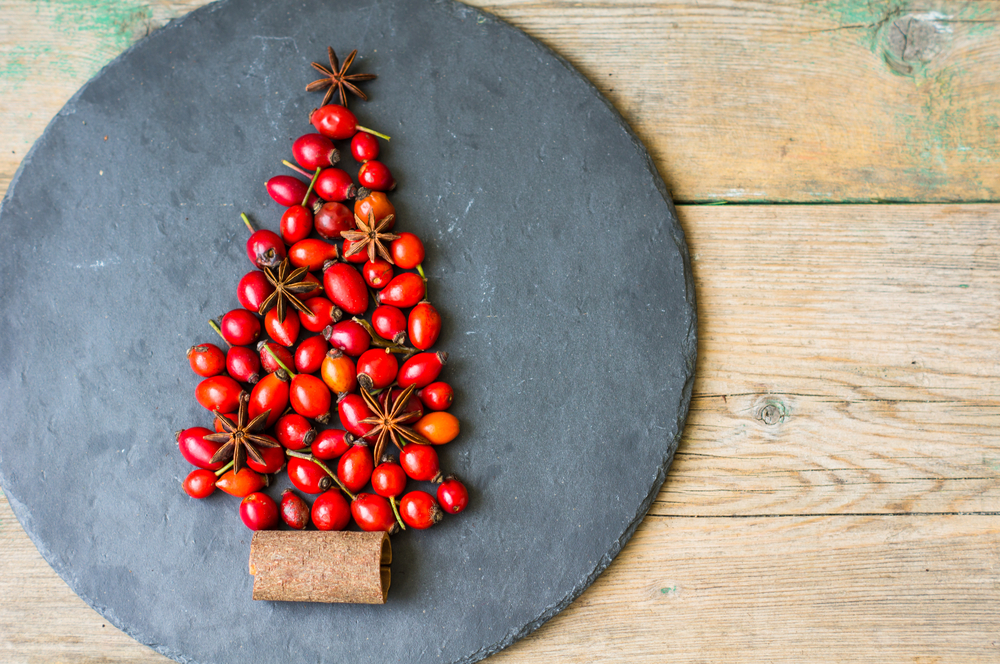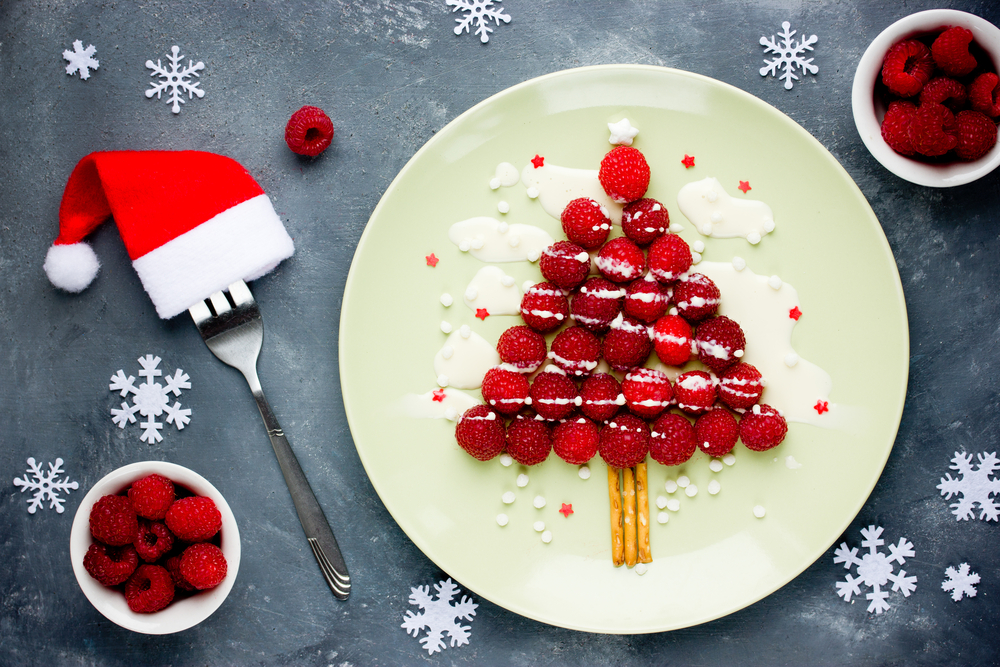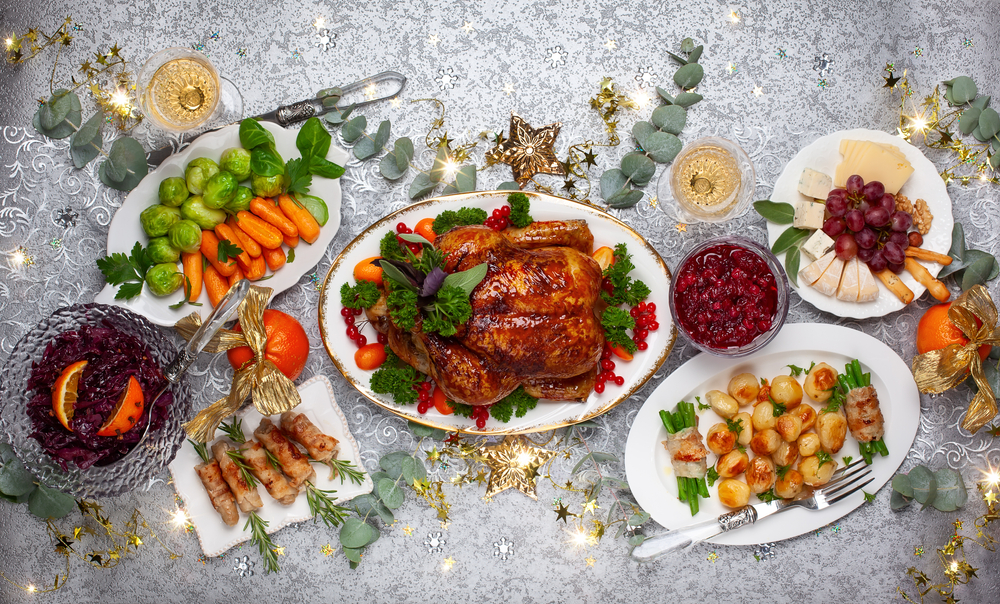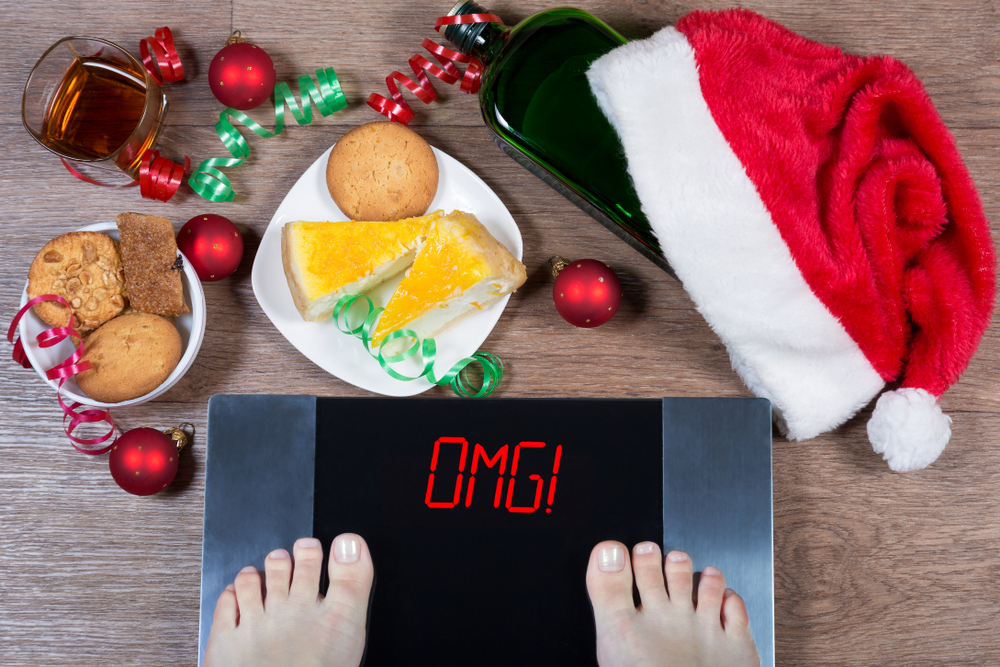Thank you for listening to my talk today. Today was all about trying not to put too many extra pounds on over Christmas and New Year. Does it feel like a vicious cycle which repeats itself year after year? The stress of preparing for Christmas, the eating behaviour of those around us, as well as the huge array of delicious-looking festive foods in all the shops creates a perfect formula for overeating.
Try Mindful Eating

We can eat mindfully and still enjoy lots of different festive foods and drink over Christmas without going completely overboard. Give yourself a few boundaries by deciding in advance of events or situations what and how much you will eat or drink.
How?
if there’s a lot of festive food flying around in the office, taking in your own snacks instead.
allocate yourself just one or two snacks during work hours (e.g., mid-morning and mid-afternoon) and don’t deviate from that to avoid grazing, whilst also deciding how many chocolates, mince pies, biscuits or chocolates you will limit yourself to per day.
Tips for eating at Home
At home make sure you have the same snack boundaries. Try to avoid second helpings at mealtimes, as well as eating any leftovers (try freezing them or make them into a handy meal for the next day). If you’re a plate-clearer, avoid picking at other family members’ food if they’ve left any on their plate.
Eating Out

If you’re eating out more over Christmas, a good way to not feel overly stuffed is to have two courses rather than three. Or you could opt for three but ensure that at least one of the courses is a lighter, healthier option. If eating out later than usual have a snack like a boiled egg before you go out. A protein snack will fill you up enough not to ruin your meal but stop you eating too much or making the wrong choices if you are starving hungry.
Remove from sight and reach
A huge trigger for unregulated eating is food that’s within reach or in sight. Try and not leave chocolates, nuts or crisps on the coffee table or lying on a kitchen surface over Christmas its too tempting. Also practice portion control easily by putting a certain amount of food in a dish, then close the packet, put it away and only eat what’s in the dish and don’t go back for more. For many people, the TV is an integral part of Christmas fun and relaxation. From my experience of working with clients, TV can be a huge trigger for mindless overeating. If food is available set yourself a portion as above.
MORE TIPS have your 5-10 a day
Christmas doesn’t have to be all about overindulgence, most meals offer a multitude of vegetables. Try to take larger portions of vegetables and less Yorkshire puddings, pigs in blankets or roast potatoes. Try to keep up your usual intake of fruit, vegetable and salad over Christmas- it’s easy to let it slip when there are other tasty, higher calorie foods about
Other People’s influence

This is really interesting over Christmas and New Year, watch out for those people who dictate what or how much you eat or drink. Some people are feeders or food ‘pushers’- is there a person in your office or a family member who encourages you to eat? Perhaps colleagues place food on your desk, or loved ones buy you a food treat or bring one to you when you’re watching TV when you haven’t asked for it. Perhaps your eating helps to justify their eating or makes them feel better about their own eating, so be wary of others sabotaging your intentions.
The problems with relying on Yo Yo Dieting?
Don’t see Christmas as a roadblock to mindful eating- see it as an opportunity, like any other time of the year, to eat in a way that’s still very much enjoyable and makes you feel genuinely good, so that you don’t get to January in need of a quick-fix remedy. It’s far better to adopt a ‘maintain not gain’ approach than a ‘feast then famine’ approach. This can help you to escape the yo-yo dieting trap. Quick-fix, rapid weight loss diets can encourage overeating both before, and after, a person embarks on a diet.
While dieting does produce impressive initial results, a new international study published in The BMJ shows that most diets, regardless of which one, lead to weight loss and lower blood pressure, but these desired effects largely disappear after a year.
Making baby steps towards a goal is the best way to make changes stick – lasting change takes time and new habits take a lot of practice before they become routine.
In a few studies, yo-yo dieting increased the risk of Type 2 diabetes. The risk is greatest in those who end up at a higher weight than before their diet. What they found was people would mainly gain the previous lost weight around there core which could increase risk.
Key Points
- The stress of preparing for Christmas, the eating behaviour of those around us, as well as the huge array of delicious-looking festive foods in all the shops creates a perfect formula for overeating.
- We can eat mindfully and still enjoy lots of different festive foods and drink over Christmas without going completely overboard.
- Give yourself a few boundaries by deciding in advance of events or situations what and how much you will eat or drink.
- If eating out later than usual have a snack like a boiled egg before you go out. A protein snack will fill you up enough not to ruin your meal but stop you eating too much or making the wrong choices if you are starving hungry.
- A huge trigger for unregulated eating is food that’s within reach or in sight. Try putting a certain amount of food in a dish, close the packet, put it away and then just eat what’s in the dish and don’t go back for more.
Thank you for reading. Clinic is still running via social media platforms such as Zoom, WhatsApp and Skype. Why not book in for a January ‘MOT’ or for support with those New Year resolutions.
Merry Christmas and thank you for reading
Regards
